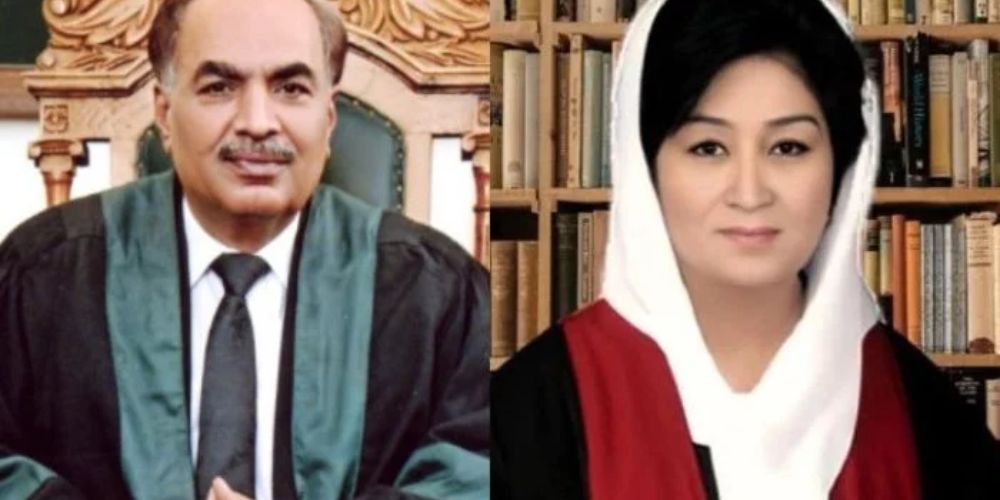Ahmed Ali Sheikh of the Sindh High Court (SHC) and Musarrat Hilali of the Peshawar High Court (PHC) has been nominated by Senior Puisne Judge Qazi Faez Isa of the Supreme Court for promotion to the Supreme Court.
The Judicial Commission of Pakistan (JCP) has nine members, according to sources, and Justice Isa has written a letter to each of them requesting their help in filling the two SC positions that have been empty for months.

A chief justice may make proposals to appoint judges to the superior judiciary, as per the JCP Rules of 2010.
Justice Isa, on the other hand, stated in a previous letter to the JCP members that Rule 3 of the JCP Rules 2010 merely indicated that the nominees be routed through the concerned chief justices, not that the concerned chief justices alone can make nominations.
He had emphasised that the chief justice’s authority was being diminished rather than increased by the commission, which was established to make the nomination and selection process inclusive and transparent.
Justice Umar Ata Bandial has been the chief justice of Pakistan (CJP) since February 1, however, he has been unable to forge a consensus about the appointment of SC judges. Two seats are currently vacant after the retirement of five SC judges last year.
The superior bars and one faction of the JCP have continued to push for the appointment of SC judges to respect the seniority criterion. The other section, headed by CJP Bandial, has prioritised other factors, such as merit and competence for judicial advancement.
It was seen that the junior judges’ promotion to the SC caused the situation at the SHC to deteriorate. The JCP’s disregard for them when filling open SC positions has angered senior SHC judges.
Seniority rule should be respected when appointing SC justices, according to a provision of the JCP that includes the superior bars. The other section, headed by CJP Bandial, has prioritised other factors, such as merit and competence for judge elevation.
It was observed that as a result of the junior judges’ promotion to the SC, the situation in the SHC deteriorated. Senior SHC justices are upset that the JCP failed to consult them before filling open SC positions.
There have been protests against what is viewed as an “unjust” representation of provinces in the supreme court from both the bench and the bar.
Four PHC justices met with CJP Bandial last year to express their concerns regarding the PHC’s failure to nominate any judges for elevation to the Supreme Court.
There is still no agreement on the appointment of SC judges because CJP Bandial does not currently have a majority in the JCP to elevate subordinate judges to the SC. The SC is currently split into two groups along ideological grounds.
Senior attorneys predict little chance that CJP Bandial will accept Justice Isa’s proposal to elevate Justice Sheikh and Justice Hilali to the SC because Bandial does not adhere to the seniority rule.
When the JCP was debating the nomination of Justice Muhammad Ali Mazhar in July 2021, Justice Bandial drew attention to the fact that Chief Justice Ahmed Ali Sheikh of the SHC had not written a reported judgement in the previous three years due to the volume of administrative work.
He had stated that “the commission cannot waive the standards for appointing a permanent judge to the Supreme Court or overlook a deficiency.”
The Pakistan Bar Council (PBC) representation, the Attorney General for Pakistan (AGP), the federal law minister, five senior SC judges, and a retired judge make up the JCP’s nine members.
A prominent attorney concurred that the chief justice’s appointment as a SC judge is unlikely given CJP Bandial’s prior opinions. He added that the K-P and Sindh provinces would react strongly if the JCP chairman — the CJP — disregarded both of the nominees.
“Justice Sheikh, a member of the Sindhi ethnic group, is one of the nominees, while Justice Hilali, a female Pakhtun judge, is another. There are no Sindhi judges employed by the SC at the moment, he claimed.


